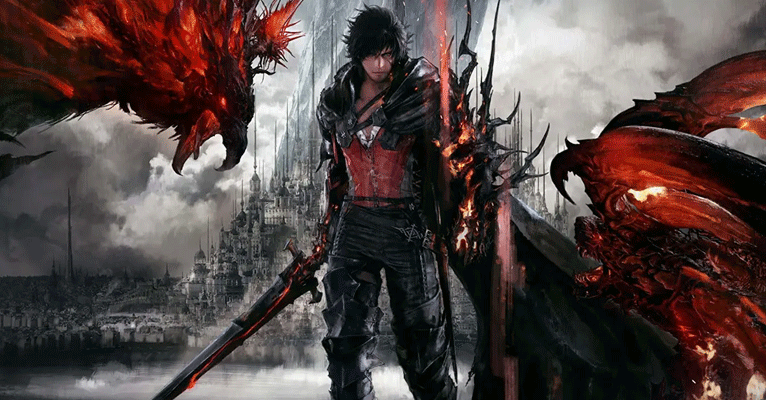The Final Fantasy series has long been known for its captivating narratives, intricate gameplay, and memorable characters. However, following a mixed reception to its predecessor, the latest installment, Final Fantasy 16, faces the challenge of regaining players’ trust. Producer Naoki Yoshida acknowledges the need to restore confidence in the franchise, emphasizing the importance of storytelling in Final Fantasy games.
Inspired by fantasy shows like Game of Thrones, Final Fantasy 16 weaves a tale that prompts players to contemplate the significance of environmental stewardship—a recurring theme throughout the franchise’s history. While the interpretation of these messages is left to the players, Yoshida believes that games should be a source of entertainment from which players can derive something meaningful.
Addressing environmental and societal issues is crucial, but Yoshida points out that Final Fantasy 16 also delves into the concept of darkness, both in the world and within ourselves. Accepting and overcoming this darkness is essential for moving forward towards a brighter tomorrow. However, Yoshida is careful not to dictate players’ emotions, acknowledging that everyone takes away something different from the game. Nevertheless, he expresses pride and happiness when players experience a profound response to the story.
Many games steer clear of overt messaging on social or political matters to avoid alienating players with differing opinions. Aoife Wilson, who reviewed Final Fantasy 16 for Eurogamer YouTube Channel, highlights the ecological themes present in most Final Fantasy games. However, she applauds Final Fantasy 16 for attempting to convey these themes through a more relatable, human perspective.
Since its debut on the Nintendo Entertainment System in 1987, the Final Fantasy franchise has sold approximately 173 million copies worldwide. As a prominent example of the Japanese role-playing game (JRPG) genre, Final Fantasy distinguishes itself by featuring independent settings for each title, albeit with occasional small overlaps. The series requires players to detach themselves from previous characters and emotionally invest in new ones with each installment—a risky approach that aims to keep the series fresh and current.
According to Wilson, this self-contained nature allows players to engage with any game in the series without needing prior experience with others. While the games are independent, they share similarities and references to previous titles, serving as a nod to dedicated fans. This reinvention of the franchise is a key factor contributing to its enduring success.
Final Fantasy games are not tailored for everyone, demanding patience and rewarding players for their dedication. Players must learn and master various attacks, as mindless button-mashing only goes so far in this franchise. The series is known for its extravagant scripts and occasionally traditional story arcs. Previous criticisms of Final Fantasy 15, for instance, focused on its primary focus on four male characters. While Final Fantasy 16 attempts to address this with the inclusion of a female character, Jill, and a queer relationship, the main protagonists still predominantly represent a white demographic.
In a highly competitive role-playing game market, Final Fantasy 16 faces the challenge of attracting players who are not already fans of the series. Games such as Legend of Zelda: Tears of the Kingdom and Hogwarts Legacy have dominated sales this year. Nevertheless, Final Fantasy 16 stands out due to its unique tone, distinct aesthetic, and enjoyable set-piece battles. Wilson believes that this release has the potential to resonate with a broader audience than previous entries, making it a game she can recommend to almost anyone with an interest in gaming.
Unlike its predecessors, Final Fantasy 16 embraces a darker tone. This departure aims to appeal to new players who are more accustomed to this aesthetic, as opposed to the gothic and modern blends seen in past installments. While the franchise has been known to require significant time investment—often spanning hours before fully experiencing its best aspects—other successful releases like Zelda
, Elden Ring, and Hogwarts Legacy indicate that gamers’ love for a title can easily justify the hours spent in a story-driven game.
The creators of Final Fantasy 16 hope that the appeal of the game will extend beyond existing fans, attracting a wider audience eager to embark on an immersive and rewarding journey. As the game releases on June 22nd, players are poised to explore a world of darkness, resilience, and the enduring power of storytelling that defines the Final Fantasy series.

